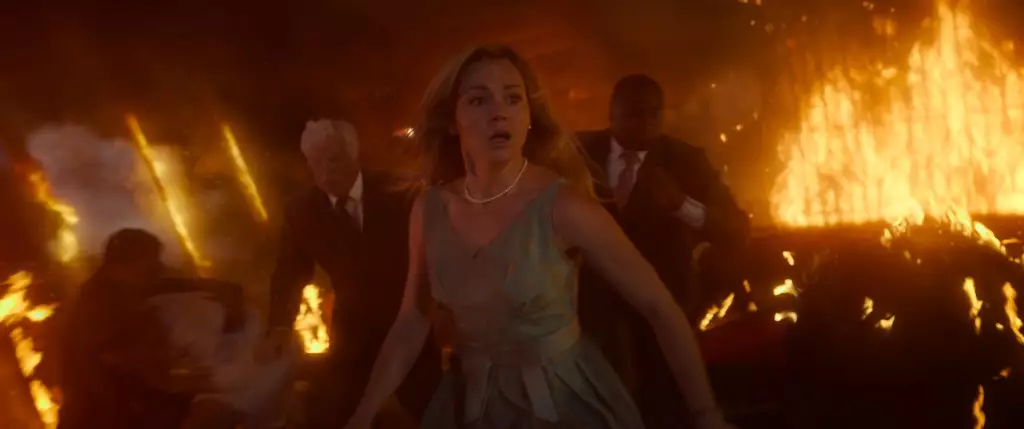After 14 long years, the return of the iconic horror franchise “Final Destination” with “Bloodlines” isn’t just a release; it’s a cultural moment waiting to happen. With box office projections ranging from $35 million to $40 million across 3,400 locations, Warner Bros is poised to reclaim its throne in the genre where it has historically excelled. It’s a bold move that begs the question: can nostalgia, paired with a contemporary twist, resonate with both devoted fans and a younger audience who may not even recognize the previous entries in the series?
There’s a yearning in the film industry for franchises that combine familiarity with freshness. We’ve seen the appetite for reboots and sequels thrive, as fans eagerly flock to theaters to revisit beloved stories. This revival taps into that sentiment perfectly, making it a calculated yet thrilling gamble for Warner Bros. The franchise has grossed over $666 million globally, a testament to its lasting appeal and the potential for “Bloodlines” to build upon that legacy. With a certified fresh score of 93% on Rotten Tomatoes, the critical reception also suggests that this chapter may not just be a mere cash grab, but an enticing addition to the series.
Strategic Targeting of the Youth Market
The marketing strategy for “Bloodlines” appears to be centered on enticing women under 25, a demographic often overlooked in the horror genre. This focus is an astute recognition of changing audience dynamics. Historically, horror films drew predominantly male audiences, but with a wave of successful female-led projects in recent years, the genre has diversified. The calculated intent to engage younger audiences, particularly women, positions “Bloodlines” uniquely in the marketplace.
Moreover, college students are a critical demographic that tend to drive box office sales, especially for supernatural and thriller content. By centering the story on a college student’s violent nightmares with familial implications, the film inherently speaks to both existential dread and the relatable endeavors of young adulthood. This is a compelling narrative thread that could spark discussions, shareability on social media, and ultimately a fervor reminiscent of the film’s predecessors.
Competing with Other Blockbusters
In the midst of its impending success, “Bloodlines” faces competition from several noteworthy titles, including the Michael B. Jordan-led “Sinners” and the MCU’s “Thunderbolts,” both of which have established audiences and solid marketing. However, the horror genre has a unique advantage; it often performs well during weekends thanks to loyal fans who relish scaring themselves senseless.
The stark contrast between the themes of “Bloodlines” and the superhero genre creates a bifurcated audience. While certain viewers are drawn to remain within the superhero realm, many prefer the thrill of horror—making the box office battle a compelling one. It’s worth noting that established franchises can easily thrive in a tumultuous marketplace if they effectively differentiate themselves, and “Bloodlines” seems well-poised to capture that demographic slice.
The Weeknd’s Cinematic Venture
In an intriguing twist, the impending release of “Hurry Up Tomorrow,” featuring The Weeknd, reveals a potential parallel in audience captivation. Multiply-platform initiatives show a trend where musicians transcend their traditional roles, entering cinematic spaces—bringing their fanbases along. Yet, the financial forecast for “Hurry Up Tomorrow” doesn’t suggest it’ll achieve the same notoriety as “Bloodlines.” The Weeknd’s film is primarily for his devoted followers and, despite its artistic intention, may fall short of wider appeal.
The stark contrast between musical spectacle and horror thrills could lead to a unique dynamic at the box office. As The Weeknd embarks on his sold-out tour, anticipation is at a fever pitch. Still, horror always has a tendency to dominate during release windows like this, capitalizing on the seasonal chills that many cinephiles yearn for.
The arrival of “Final Destination: Bloodlines” sets a clear path for the resurgence of horror flicks and franchise potential. It marks not just a cinematic event but an exploration of where audience psyche meets production strategy. Hollywood is continuously evolving, and as film-viewers seek both escapism and relatability, the industry must adapt accordingly. With a focus on deliberate audience engagement, Warner Bros might just reignite the horror flame, heralding a new era for this thrilling franchise.

